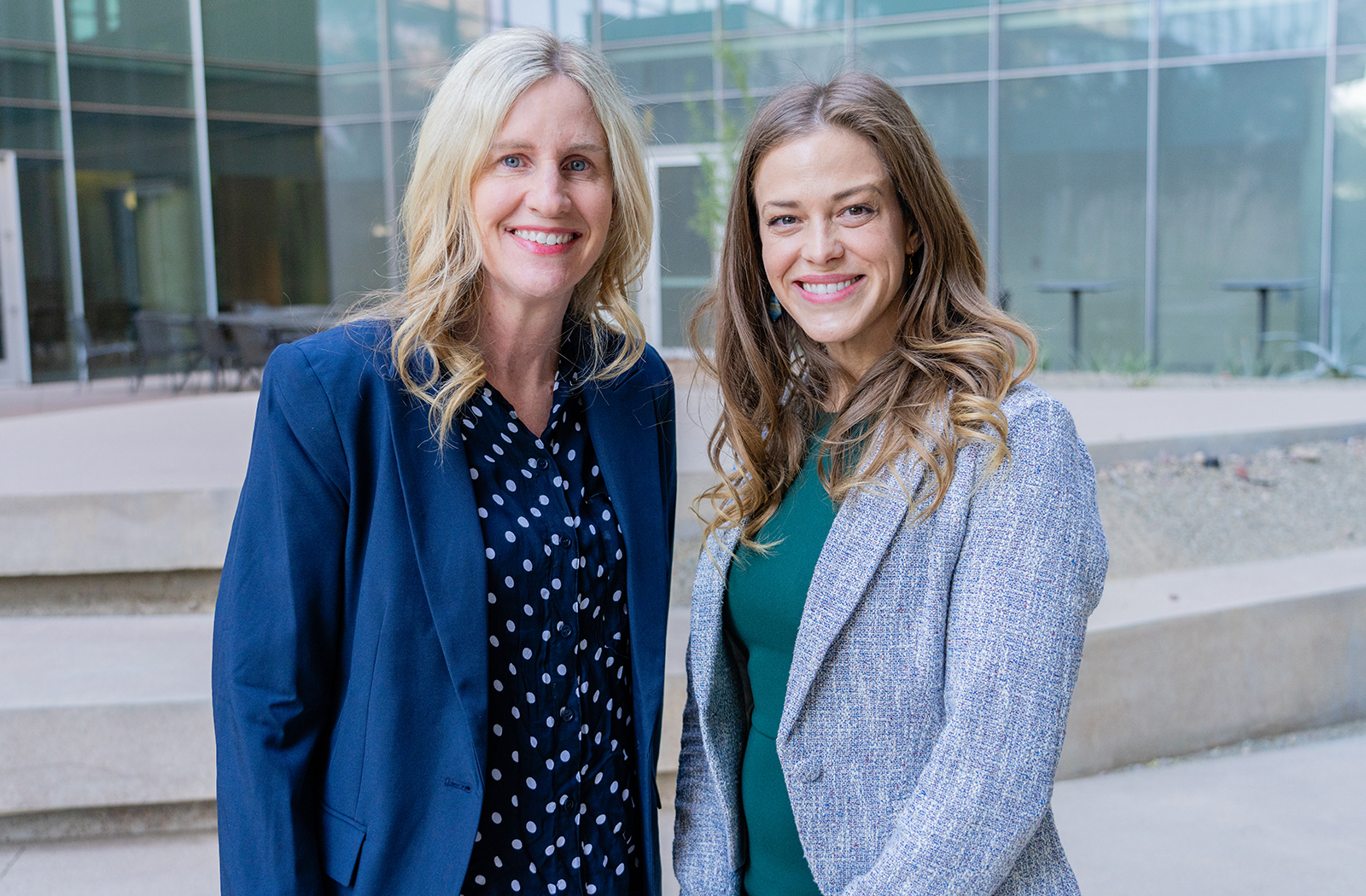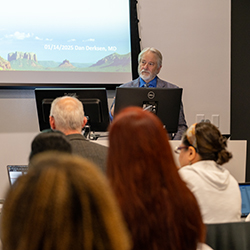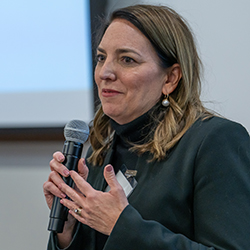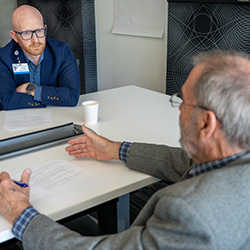
Primary Care Physician Workforce Development Summit Addressed Current Challenges

The University of Arizona College of Medicine – Phoenix hosted the Primary Care Physician Workforce Development Summit on January 14 and 15.
The summit was designed for academic leaders, hospitals, Federally Funded Health Centers, tribal health systems, policy makers and other stakeholders interested in addressing the primary care physician workforce crisis in Arizona.
“We are excited to host the inaugural primary care physician workforce development summit,” said Fredric Wondisford, MD, MS, MBA, dean of the U of A College of Medicine – Phoenix. “We are happy to be joined by colleagues and leaders who not only understand but are taking action to address this critical need.”
The College of Medicine – Phoenix funded this summit through a grant from the Health Resources and Services Administration (HSRA) to help with Arizona’s physician shortage.

According to Leah Hillier, MD, assistant clinical professor for the college’s Department of Family, Community and Preventive Medicine, fixing this issue will be a collaborative effort.
“We are specifically focusing on primary care physician workforce shortage”,” Dr. Hillier said. “We are bringing stakeholders together statewide because it’s a statewide problem that we are addressing, and we are calling out that we are in a workforce crisis and our trajectory is not good.”
Daniel Derksen, MD, the U of A Health Sciences associate vice president for Rural Health Outreach and Development Initiatives, spoke at the summit. He discussed the Arizona primary care physician workforce through statistics, citing state numbers and projections.
According to Center for Rural Health at the U of A’s Mel & Enid Zuckerman College of Public Health, Arizona ranks 42nd in the United States in the number of primary care physicians per 100,000 — despite being ranked 14th in population nationwide.
“As far as the number of residency slots that we have per 100,000, we would need today to add 1,100 graduate medical education full-time equivalents to get to the number needed to support our population,” Dr. Derksen said.
Roger Bush, MD, a board-certified internist in Seattle, Washington, discussed the quality of care for people living in rural communities. Dr. Bush discussed the various challenges rural health care faces, such as fewer providers, lack of information technology and fewer staff available to meet many different demands.
“My opinion is that the way we look at the world and the skills that are target skills for physicians and the way we train people is not directly transferable from urban referral hospitals to rural America,” Dr. Bush said. “The quality services that we provide in Phoenix or Seattle, where I live, are completely different than what is appropriate for rural health care.”

Cheryl O’Malley, MD, MACP, FHM, vice dean of the college’s Graduate Medical Education, and Katie Brite, MD, associate dean of the college’s Office of Community Engagement, also served as presenters. They talked about the primary care pipeline.
To alleviate the strain of the physician shortage, Drs. O’Malley and Brite discussed the college’s new three-year accelerated primary care track for students committed to remaining in Arizona for residency training and dedicated to promoting the practice of medicine in rural, Tribal and/or urban medically underserved areas of the state.
“This will be for students who are interested in primary care medicine,” Dr. Brite said. “We are focused on our existing programs and our new developing rural and tribal programs so that we have a pipeline.”
The first cohorts of this accelerated track will matriculate with the Class of 2029, start clerkships in March 2027, start sub internships in January 2028 and begin residencies by July 2028.
Louis Sanner, MD, MSPH, FAAP, an emeritus professor in the University of Wisconsin’s Department of Family Medicine and Community Health, focused his discussion on how to build new residencies in Arizona for more incoming physicians.
Dr. Sanner stressed the need for transparency and clear financial models and highlighted the challenges in recruiting and retaining residents.
Other speakers at the summit included Amy Upston, director of Financial Policy and Reimbursement for the Arizona Hospital and Healthcare Association; Charles Alfero, part time GME specialist for the U of A’s Area Health Education Centers program; Ed Paul, MD, board-certified family physician; and Sharry Veres, MD, MHSM, professor and chair of the college’s Department of Family, Community and Preventive Medicine.

The vision for this summit came from a group of primary care academic leaders across the state, who meet monthly and collaborate around Arizona primary care education and workforce needs.
In addition to the presentations, the summit hosted breakout groups to discuss current training, developing training and policy, advocacy and leadership. Group discussions about next steps and points of collaboration were also conducted. Day two of the summit focused specifically on Graduate Medical Education (residency program) start up and sustainability strategies, and included time for rural, Tribal and FQHC statewide partners who are interested in forming residencies to meet with the summit experts for advice and guidance.
About the College
Founded in 2007, the University of Arizona College of Medicine – Phoenix inspires and trains exemplary physicians, scientists and leaders to advance its core missions in education, research, clinical care and service to communities across Arizona. The college’s strength lies in our collaborations and partnerships with clinical affiliates, community organizations and industry sponsors. With our primary affiliate, Banner Health, we are recognized as the premier academic medical center in Phoenix. As an anchor institution of the Phoenix Bioscience Core, the college is home to signature research programs in neurosciences, cardiopulmonary diseases, immunology, informatics and metabolism. These focus areas uniquely position us to drive biomedical research and bolster economic development in the region.
As an urban institution with strong roots in rural and tribal health, the college has graduated more than 1,000 physicians and matriculates 130 students each year. Greater than 60% of matriculating students are from Arizona and many continue training at our GME sponsored residency programs, ultimately pursuing local academic and community-based opportunities. While our traditional four-year program continues to thrive, we will launch our recently approved accelerated three-year medical student curriculum with exclusive focus on primary care. This program is designed to further enhance workforce retention needs across Arizona.
The college has embarked on our strategic plan for 2025 to 2030. Learn more.